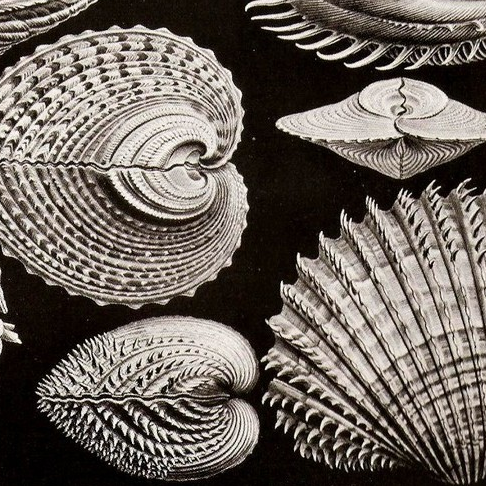The Collapse of Western Civilization is a small book, published last year by climate historian Naomi Oreskes and historian of space science Erik Conway. Only a few months out, it already had quite some publicity. Also on me, Oreskes’ and Conway’s narrative had a bigger impact than other recent climate scenarios. The booklet of 104 pages made me turn off my gas heater for several days in the mid of winter.
Why is this fictional narrative so much more intimidating than the official reports? In the unconventional book, the authors have a future Chinese historian, living 378 years from now, look back at our presence. Her research objective is to understand how the industrialised capitalist society could have missed so many potential turning points in its long slide into the climate catastrophe. In 2093, a last naïve technological experiment to prevent the West Antarctic Ice Shield, and with it their own society, from collapsing had of course failed. Only centrally and totally controlled governments such as the Second People’s Republic of China, home of the chronicler of the collapse, had the means to adapt rapidly enough to rising sea-levels, waves of climate migration and the spread of terrible diseases. A true dystopia?
“Science-based fiction”
Indeed, many times, praises and reviews have compared the book to the classic dystopias such as or Aldous Huxley’s Brave New World (1931) or George Orwell’s 1984 (1949). Actually, this categorization is not completely justified. Oreskes’ and Conway’s story is everything but pure science fiction, the story is based on facts and predicts a very plausible scenario, as authors and reviewers repeatedly stress. Nevertheless, few official reviews have associated Oreskes’ and Conway’s book with the numerous other, non-fictional scenario studies. One could for example draw links to the Club of Rome’s Limits to Growth, which in 1972 rightly predicted increasing resource population problems. Especially a more recent study, Turn Down the Heat, would lend itself to comparison. Prepared for the Word Bank by the Potsdam Institute for Climate Impact, the study discusses the far reaching biological and socio-economic consequences that might result from a 4 °C-rise in average global temperature. Yet, The Collapse of Western Civilization, in its narrative approach, differs significantly from the lesser-known World Bank report published in the same year.

“A past that is our present and could become our future” – a refreshing revival of the doomsday
First of all, scenarios like Turn Down the Heat seem to tell us little new. Driving cars is bad, flying is the worst. Still we do it. Still we believe the consequences will seldom apply to us – conveniently located Westerners in North America and Central Europe. The regions that will first feel the effects of the changing climate will be those in the agrarian South – those far, far away. And maybe it isn’t so bad after all? The tone of recent reports remains relatively optimistic. In politics, doomstering has gone out of fashion. At least since the neoliberal 1980s, environmental pessimism seems to have been a taboo within political elites. Climate solutions have to be comfortable. Environmental measures cannot demand too many socio-economic sacrifices.
Oreskes and Conway take off the gloves. Their book paints an invigoratingly dark picture. All of Western society will feel the consequences of global warming in the foreseeable future. In their scenario, I, a European now in my twenties, will be severely affected by the global social consequences of climate change. In times when the President of the United States can comfortably push both new gas drilling projects in the Arctic sea and new limits to his country’s carbon emission, this new pessimism may be able to speak to many young, disillusioned citizens.
“Sea Level Rise Denial Bill”
Secondly, Oreskes and Conway discuss the socio-economic consequences of the climate catastrophe in much detail, in contrast to strictly scientific scenarios. Usually, we use modern society as our individual excuse for polluting the earth’s atmosphere, often despite our better understanding. For work, we naturally fly from Amsterdam to Berlin, trains take way too long. In Oreskes’ and Conway’s future history, societal structures become the origin of evil. With the “Sea Level Rise Denial Bill” and the “Carbon Combustion Complex” the authors give catchy names to the sad market politics of the West. Through one their extreme scenario, Oreskes and Conway make us recognize the socio-economic and political reasons for the reluctance of the West to deal with the climate problem, much in line with Huxley and Orwell. The satirical tone allows ridiculing our system we hold so dear, and at the same time makes us see its rotten core.

Not with a wagging finger
The last and perhaps most important point is one of perspective. In describing something that has already happened, The Collapse of Western Civilization does not wag the finger at us. In contrast to scenario studies, it does not forbid us anything. Neither does it suggest potential solution strategies. Rather, it portraits an inescapable disaster evoked by industrial capitalist structures that would and could not change. With solemn indifference, it lets us watch how whole populations “of course, were wiped out,” while we precipitate further into our own inevitable ruin (p. 33). What remains however puzzling for the future historian is the one “most astounding fact” why and how our present society could ignore what was so plain for us to see (p.35).
Reading this I felt powerless at first. Very soon, however, my feeling changed into outrage and disgust about our ability to see our world endangered, and our seeming disability to change. And here lies the power of Oreskes’ and Conway’s fictional approach. The very feeling of being trapped in a faulty system might be strong enough to actually encourage individuals to act. As it seems that governments and industrial tycoons will continue to keep each other from abandoning their fatal ways, it suddenly seems a lot easier and of paramount importance to start with ourselves.
o-o-o
Simone Schleper is a PhD candidate at Maastricht University. Her research is part of the NWO-funded project ‘Nature’s Diplomats’ on the role of ecology experts in international nature conservation organisations in the twentieth century.

